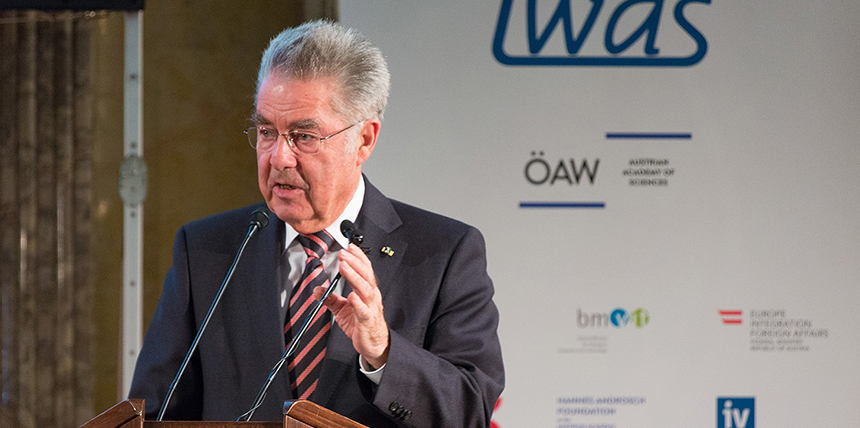
VIENNA – Science and policy leaders from Europe and the developing world urged a strong commitment to international cooperation on innovation, sustainable development and global peace during the opening ceremony of the 26th TWAS General Meeting.
Lead by Austrian Federal President Heinz Fischer, speakers at the ceremony acknowledged a range of challenges confronting the world, from hunger and climate change to terrorism. Only by working together can the challenges be addressed, they said, and science cooperation must play a central role.
"I regard scientific institutions as important and in fact indispensible for the positive development of a country or of a society," said Fischer. "Promoting international cooperation in science is one of the core issues in our globalized world ... in particular in Europe."
Scientific networks in the developing world are gaining importance, he added, and he called TWAS "foremost among these networks....[in] playing a key role in international scientific cooperation."
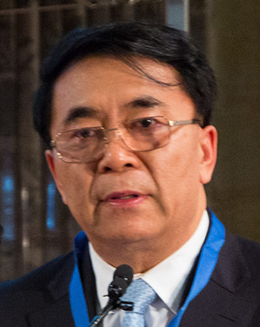
TWAS President Bai Chunli also endorsed expanded cooperation. Through much of its existence, Bai said, TWAS and scientists in the developing world have had vital support from Italy, Sweden, the UK and other partners in the developed world – and now, from Austria.
"Today, as in years past, we have much to learn from our colleagues in the North," Bai said in his opening address. "But our research centres in the developing and emerging countries are making great progress. Increasingly we are doing world-class work. As this progress continues, we will find that we have much to learn from each other, and that we can join as equals in projects that benefit all people."
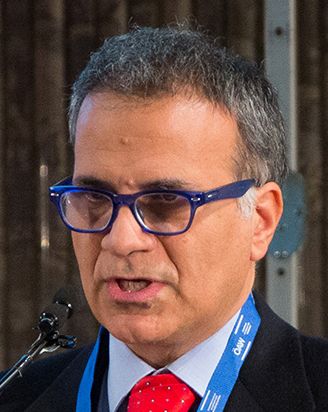 TWAS is an important organisation for bringing nations together, both through science and science diplomacy, said Giorgio Marrapodi, Italy's ambassador to Austria. "Today the need for science diplomacy is growing," Marrapodi said. "Italy strongly believes that TWAS can act globally and locally with an integrated approach to the local scientific communities and an expanding global vision."
TWAS is an important organisation for bringing nations together, both through science and science diplomacy, said Giorgio Marrapodi, Italy's ambassador to Austria. "Today the need for science diplomacy is growing," Marrapodi said. "Italy strongly believes that TWAS can act globally and locally with an integrated approach to the local scientific communities and an expanding global vision."
More than 300 high-level policymakers, diplomats, researchers and others convened for opening ceremony of TWAS's yearly General Meeting, held this year from 18-21 November at the Austrian Academy of Sciences, one of Europe's premier institutions for science and research.
The event also was supported by the Austrian Federal Ministry of Science, Research and Economy; the Austrian Federal Ministry for Transport, Innovation and Technology; the Mayor and the Cultural Department of the City of Vienna; the Austrian Federal Ministry of Foreign Affairs; the Hannes Androsch Foundation; and the Federation of Austrian Industries.
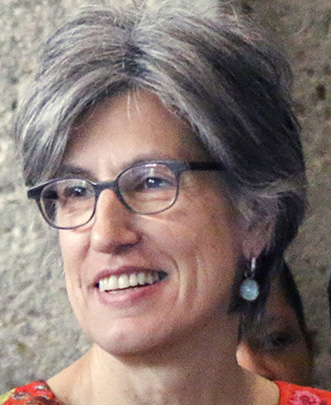 Grave global tensions formed a backdrop for the meeting, and the opening ceremony began with a moment of silence for the victims of terror attacks in Egypt, Beirut, Paris and other locations. Indeed, Flavia Schlegel, UNESCO's assistant director general for natural sciences, was unable to leave Paris because of the attack there just days before TWAS convened in Vienna.
Grave global tensions formed a backdrop for the meeting, and the opening ceremony began with a moment of silence for the victims of terror attacks in Egypt, Beirut, Paris and other locations. Indeed, Flavia Schlegel, UNESCO's assistant director general for natural sciences, was unable to leave Paris because of the attack there just days before TWAS convened in Vienna.
"This terrorist wave of violence strikes at the aspiriation to live in a world where dialogue, mutual understanding and cooperation participate to bolstering peace and scientific progress toward sustainble development," Schlegel said in a message taped for the ceremony.
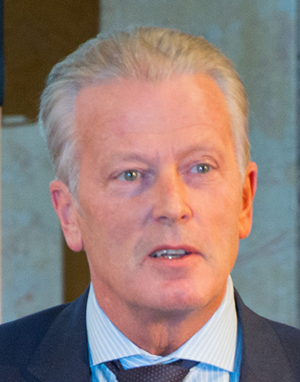 Reinhold Mitterlehner, Austria's vice chancellor and federal minister of Science, Research and Economy, also cited the threat of terrorism – and the need for scientific research on the phenomenon.
Reinhold Mitterlehner, Austria's vice chancellor and federal minister of Science, Research and Economy, also cited the threat of terrorism – and the need for scientific research on the phenomenon.
"Terrorism is a constant threat to our freedom and our will to live together in peace," Mitterlehner told the audience. "We thus need to understand how to prevent and fight terrorists. Governments, politicians, scientists and civil society – the efforts of each and every one are needed. We all have the responsibility to help ensure that racism and the fear of unknown stand no chance in our society."
Speakers at the opening ceremony – and throughout much of the meeting – focused on a range of other persistent challenges that may impede human prosperity, many of them identified in the United Nations' recently approved Sustainable Development Goals. The 17 goals, under the rubric of the 2030 Agenda, call for an end to poverty and hunger, gender equality, sustainable use of resources, efforts to limit climate change, and other objectives.
"Investing in science and technology is necessary to achieve the SDGs," said Harald Mahrer, State Secretary of Austria's Federal Ministry of Science, Research and Economy. "As you all know, science is an essential tool in understanding and consequently tackling global challenges. Science provides us with potential solutions that, for us politicians, serve as a basis for targeted decision-making."
At the same time, the SDGs will "shape our future in international cooperation", he added. "Sustainable development in the 21st century is not something that happens to someone else, somewhere far away – we all have a stake in it, and every country has work to do. All of us need to bolster our efforts."
Based on this awareness, the Austrian Ministry of Science, Research and Economy "invests heavily" science cooperation with developing countries," Mahrer said. Through its Commission for Development Research, the ministry provides scholarships and grants to students and postdoctoral researchers from developing countries.
Other speakers underscored the point: International cooperation is the core mechanism to drive progress and peace, today and in the future.
"In the global South, there is an abundance of talented young minds with fresh perspectives on the challenges that they face every day," Schlegel said in her taped remarks. "It is the responsibility of the global scientific community to nurture the next generation of scientists and to ensure their research gains the attention and policy focus it deserves.
"North-South and South-South relations are essential for disseminating knowledge around the globe," she said.
Marrapodi, the Italian ambassador, described TWAS as a hub for such relations, working with the international scientific organisations of the "Trieste System" to advance the cause.
TWAS President Bai echoed that theme. While the Academy is known for building South-South research networks, he said, South-North partnerships have been crucial to TWAS since its founding more than 30 years ago.
"Of course TWAS is focused on science in the developing world – that will always be our mission," he said. But, he added: "We can properly see our role as bringing South and North together, and helping the world to develop its full potential in science and engineering.
"This is why our meeting in Vienna is so important. It is a signal to the world: South and North have shared interests, and we are working together."
Austrian President Fischer suggested that Vienna is a natural setting for such an important global meeting and such a message. The city has recently served as the site of urgently important negotiations over Iran's nuclear programme and the future of Syria, he said.
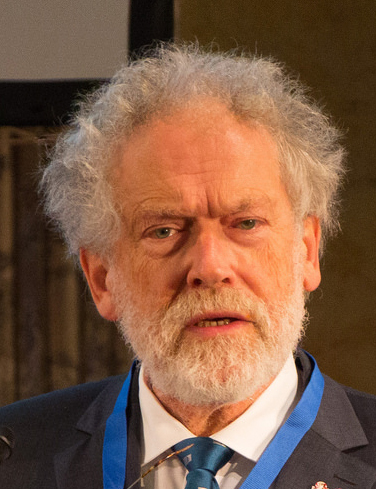 And the Austrian Academy of Sciences is an ideal location for the TWAS General Meeting, said Anton Zeilinger, the Academy's president and a 2014 TWAS Fellow. From 1755 to 1858, it served as the main seat of the University of Vienna. Zeilinger pointed to the elaborate fresco on the ceiling of the elegant Festive Hall, and sections representing the four classical faculties: theology, medicine, law and philosophy, which includes all of the humanities and sciences.
And the Austrian Academy of Sciences is an ideal location for the TWAS General Meeting, said Anton Zeilinger, the Academy's president and a 2014 TWAS Fellow. From 1755 to 1858, it served as the main seat of the University of Vienna. Zeilinger pointed to the elaborate fresco on the ceiling of the elegant Festive Hall, and sections representing the four classical faculties: theology, medicine, law and philosophy, which includes all of the humanities and sciences.
The philosophy sections bears the inscription: "Causarum Investigatio" – in effect, searching for answers.
"Investigation – to be open to results," Zeilinger explained. "This is what is important in science, that we are open to results. It is the strength of science that we are willing to change all our views if there is evidence against what we believe. This is typical in science and it has happened many times in the history of the sciences."
It is through such an enduring process, he said, that "science can contribute to solving social and truly global problems to achieve sustainable goals".
Edward W. Lempinen

